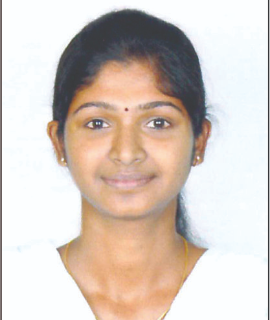Title : Strain improvement of Chlorella sp. KM504965 by radiation breeding for biofuel production
Abstract:
Overexploitation of fossil fuels necessitated alternative sustainable feedstock for biofuel production. Biofuels are one among promising alternative renewable energy reserves. Among biofuels, microbial oils would serve as a suitable renewable feedstock for biodiesel production. The involvement of microorganisms in the development of first, second, third and fourth generation biofuels is well known. Microorganisms with the inherent ability to accumulate > 20 % lipid of their biomass are termed oleaginous. Among oleaginous microorganisms, microalgae are a very important component for future biofuel production because they are phototrophic, grow rapidly, synthesize and accumulate huge amounts of neutral lipids (mostly triacylglycerol) in the cytosol by efficient conversion of solar energy, water, and carbon dioxide into lipids and carbohydrates. Moreover, the cultivation of microalgae requires lesser arable land, water, and other inputs than non-edible oil-yielding crops like jatropha (Jatropha curcas), karanj (Millettia pinnata), mahua (Madhuca longifolia) and laurel (Laurus nobilis) and do not compete with crops. They are also capable of utilizing CO2 or flue gases and thus help to mitigate greenhouse gas emissions. Although microalgae as a feedstock for biodiesel production was initiated in 1970’s during the energy crisis by the US Department of Energy, (DOE) at NREL, Colorado as Aquatic Species Program (ASP), till now the technology has not reached the industrial application due to many hurdles like lower biomass and lipid productivity. To meet the requirement, several studies are underway. Strain improvement through either classical or molecular genetic approaches such as random mutagenesis, gene transfer, and adaptive laboratory evolution (ALE) can be exploited to achieve future needs. Genetic manipulation through mutagenesis is a rapid, viable, and environment-friendly approach for enhancing biomass and lipid content. Random mutagenesis is considered to be ideal because it is highly efficient, requires only little genetic information about the organism, and is free from genetically modified organisms (GMO) related biosafety issues. Gamma rays are suitable for generating stable mutants due to chromosomal aberration caused by these ionizing radiants and their inability to induce photoreactivation, unlike UV mutagenesis. Gamma-ray is being used to generate microalgal mutants for many industrial applications in the past decades. With this view, an attempt was made to improve the strain with enhanced lipid and biomass productivity of Chlorella sp. KM504965 for cost-effective biofuel production by gamma irradiation. Further morphological, physiological, biochemical and molecular characterization studies were performed with the evolved mutants and the wild type in order to select suitable mutants for future sustainable biofuel production. This novel strategy of using gamma radiation for strain improvement in terms of biomass, macromolecular composition and lipid accumulation capacity will meet the future requirement of industrial biofuel production.




